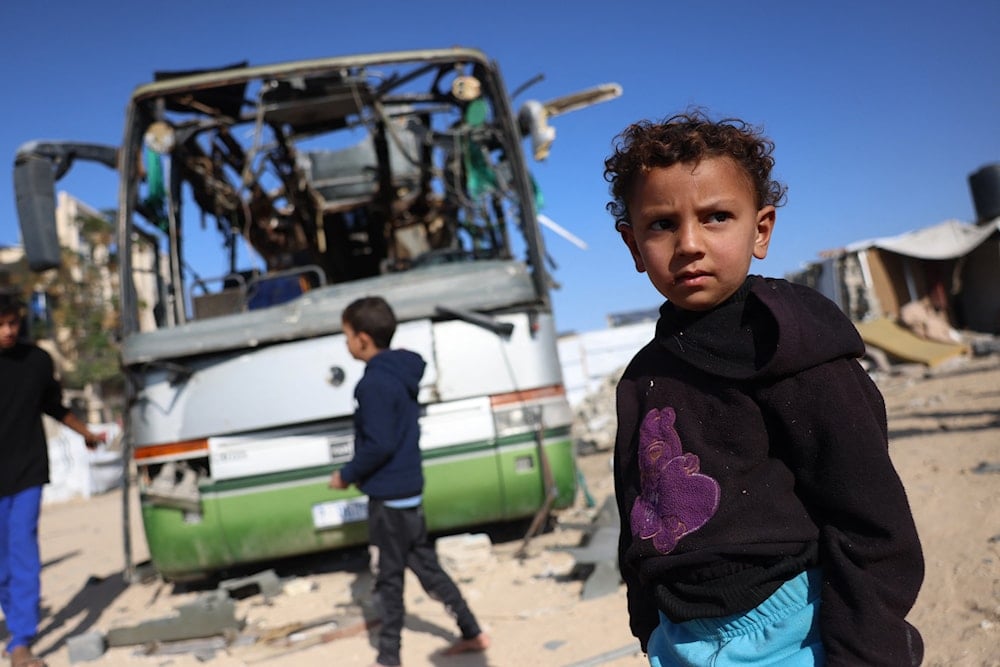Almost impossible to deliver even fraction of aid to Gaza: UN official
The UN under-secretary-general for humanitarian affairs says the situation in the occupied West Bank is also worsening, with the death toll reaching unprecedented levels.
-

Children look at the carcass of a bus hit by an Israeli strike which led to casualties, in the Mawasi area west of Khan Younis city in the southern Gaza Strip on December 23, 2024. (AFP)
Gaza is currently the most dangerous place to provide humanitarian aid, emphasized Tom Fletcher, the UN Under-Secretary-General for Humanitarian Affairs and Emergency Relief Coordinator, on Monday.
In a statement, Fletcher highlighted that in a year that has seen the highest recorded number of humanitarian workers killed, it has become "almost impossible to deliver even a fraction of the aid that is so urgently required."
"The Israeli authorities continue to deny us meaningful access – over 100 requests to access North Gaza denied since 6 October," he indicated.
In Amman, I’ve been meeting with our teams working in Gaza. Intensity of violence means there’s nowhere civilians are safe. Schools, hospitals, civilian infrastructure must not be target. We continue to support survivors, against all odds.
— Tom Fletcher (@UNReliefChief) December 23, 2024
My statement:https://t.co/ZQkyclnwlu
While the North endured a near-total blockade for over two months, raising the specter of famine, Fletcher warned that southern Gaza is "extremely overcrowded, creating horrific living conditions and even greater humanitarian needs as winter sets in."
He pointed out that across Gaza, "Israeli airstrikes on densely populated areas continue, including on areas where Israeli forces have ordered people to move, causing destruction, displacement and death."
The UN official stressed that "the sustained intensity of violence means that there is nowhere that civilians in Gaza are safe."
"Schools, hospitals and civilian infrastructure have been reduced to rubble."
Touching on the occupied West Bank, Fletcher said that the situation there is also worsening, with the death toll reaching unprecedented levels.
He noted that over the past year, Israeli military operations destroyed "essential infrastructure such as roads and water networks, especially in refugee camps from which families have been displaced."
Escalating settler violence and home demolitions have led to further displacement and increased needs, while movement restrictions severely hinder livelihoods and access to essential services, particularly healthcare, Fletcher added.
The UN under-secretary-general for humanitarian affairs urged the international community to uphold international humanitarian law, demand the protection of civilians, call for the release of all Israeli captives held in Gaza, support UNRWA’s critical work, and break the cycle of violence.
He also commended the humanitarian workers who are tirelessly saving lives under such extraordinary conditions.
Read more: IOF besiege Indonesian Hospital in northern Gaza on 445th day of war

 2 Min Read
2 Min Read








